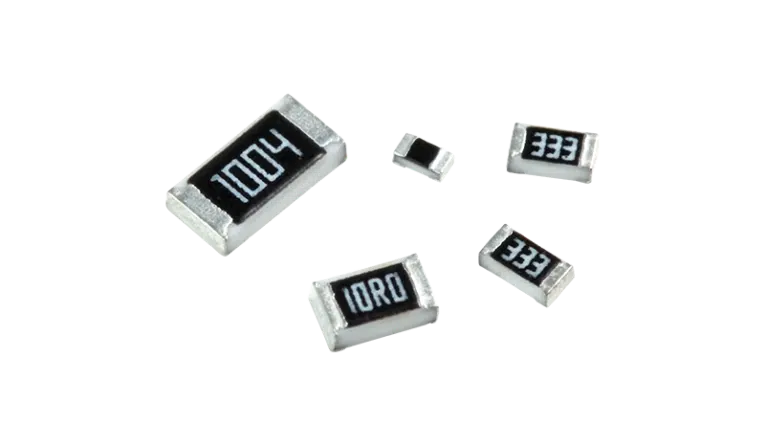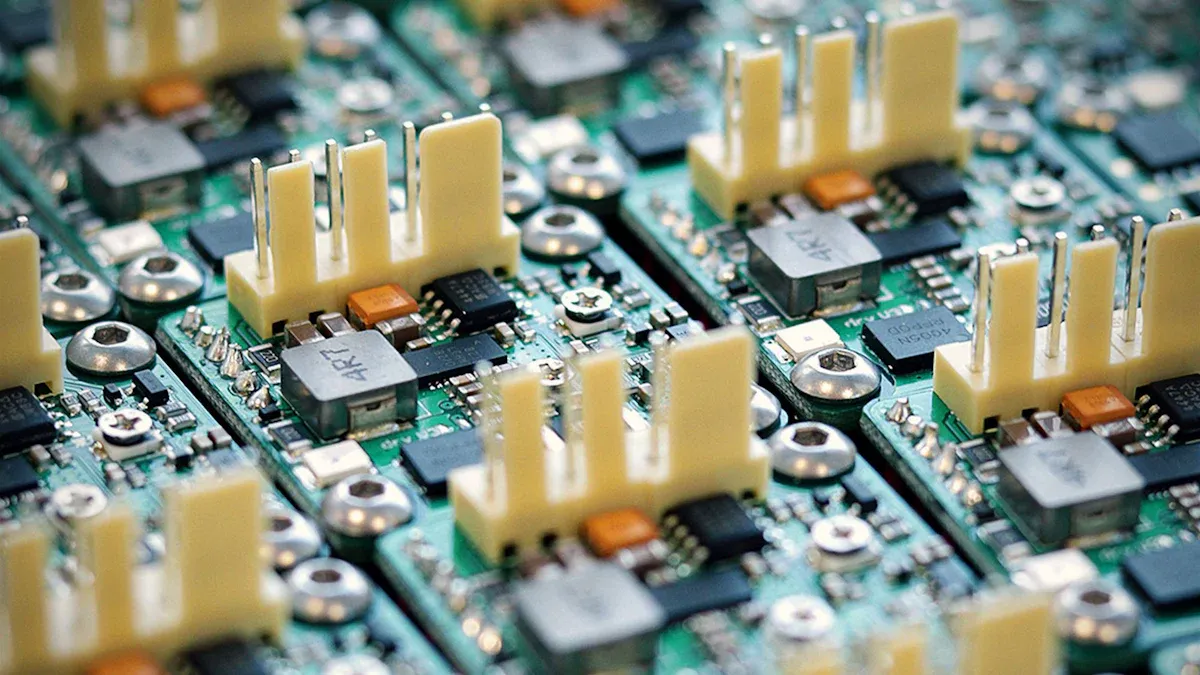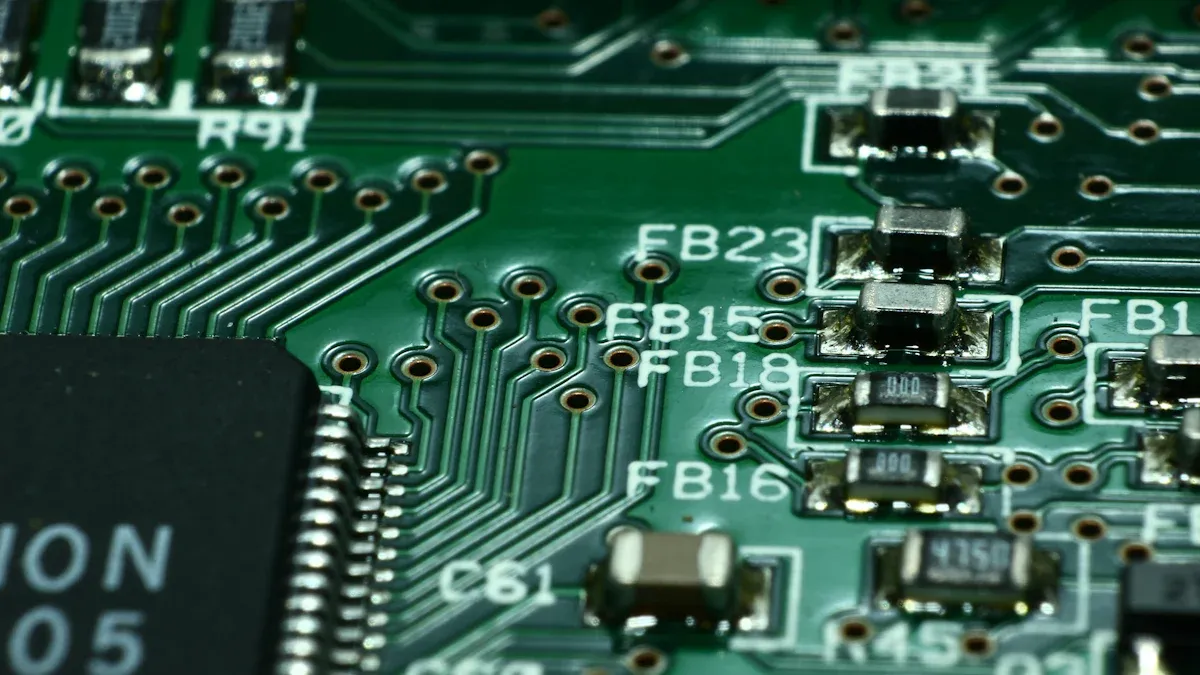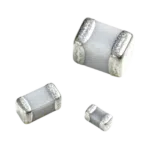
RC Resistors play a critical role in precision engineering. These components help maintain stability and reduce noise in electronic circuits. Engineers rely on them to manage heat efficiently, ensuring the longevity of sensitive systems. By integrating a resistor with a capacitor into an RC circuit, designers achieve precise control over signal behavior. This combination provides dependable performance for diverse applications, making it an essential element in modern electronics.
Key Takeaways
-
RC resistors make circuits work better by keeping energy steady. They also cut down on noise, helping electronics run smoothly.
-
Knowing how the time constant works in RC circuits helps engineers control how fast things charge or discharge.
-
RC circuits handle heat well, which helps parts last longer and lowers repair costs in powerful systems.
-
RC resistors can be used in many ways, from gadgets at home to machines in factories.
-
Using RC resistors saves money on building and fixing, making them a good choice for cheaper projects.
Understanding RC Resistors and RC Circuits
What Are RC Resistors?
RC resistors are essential components in electronic circuits. They work alongside capacitors to regulate electrical signals and manage energy flow. Engineers use these resistors to control current and voltage levels, ensuring stable circuit performance. The YAGEO RC series exemplifies this functionality, offering reliable solutions for diverse applications.
These resistors feature a thick film design, which enhances durability and precision. Their compatibility with various soldering processes makes them suitable for modern manufacturing environments. By integrating RC resistors into designs, engineers achieve consistent results in both consumer electronics and industrial systems.
The Role of RC Circuits in Electronics
RC circuits combine resistors and capacitors to perform critical tasks in electronics. These circuits manage signal timing, filter noise, and stabilize voltage levels. Their ability to shape the step response of a system makes them indispensable in precision engineering.
In charging circuits, RC circuits control the charging of capacitors, ensuring predictable energy storage. In discharging circuits, they regulate the release of stored energy, maintaining signal integrity. This dual functionality supports applications ranging from smart devices to automotive systems.
RC circuits also play a vital role in signal processing. They filter unwanted frequencies, improving the clarity of transmitted data. Their versatility allows engineers to tailor designs for specific needs, whether in consumer electronics or industrial automation.
Importance of the Time Constant in Circuit Design
The time constant is a key parameter in RC circuit design. It defines how quickly a capacitor charges or discharges in response to voltage changes. Engineers calculate this constant by multiplying the resistor value by the capacitor value.
A longer time constant results in slower charging of the capacitor, which is ideal for applications requiring gradual energy storage. Conversely, a shorter time constant enables rapid response, suitable for high-speed systems. Understanding this concept helps engineers optimize circuit performance for specific tasks.
The time constant also influences the step response of RC circuits. It determines how smoothly a circuit transitions between states, ensuring stable operation. By mastering this principle, designers create circuits that meet the demands of modern electronics.
Challenges Solved by RC Resistors

Noise Reduction in Electrical Systems
Electrical systems often face interference from unwanted signals, which can disrupt performance. RC resistors, when paired with capacitors in an RC circuit, help mitigate this issue. These circuits filter out high-frequency noise, ensuring smooth signal transmission. By controlling the charging of capacitors, RC circuits stabilize the flow of energy, reducing the impact of external disturbances.
In audio systems, for example, RC circuits eliminate background noise, enhancing sound clarity. Similarly, in communication devices, they suppress electromagnetic interference, improving data transmission quality. Engineers rely on the precise response of RC circuits to maintain signal integrity in these applications.
Signal Stability in Complex Designs
Modern electronic designs demand consistent signal behavior. RC circuits play a crucial role in achieving this stability. By regulating the step response of a circuit, they ensure smooth transitions between states. This capability is vital in systems where abrupt changes can lead to errors or malfunctions.
RC resistors contribute to this stability by controlling the time constant of the circuit. A well-calculated time constant allows for predictable energy flow, whether in a charging circuit or a discharging circuit. This predictability is essential in applications like power management systems and automation equipment.
For instance, in smart devices, RC circuits maintain stable voltage levels, preventing fluctuations that could damage components. In industrial systems, they ensure reliable operation under varying load conditions. The adaptability of RC circuits makes them indispensable in complex designs.
Heat Management for Circuit Longevity
Heat generation is a common challenge in electronic circuits. Excessive heat can degrade components, reducing their lifespan. RC resistors address this issue by distributing energy efficiently within the circuit. Their thick film construction enhances heat dissipation, ensuring reliable performance even under high loads.
In power-intensive applications, RC circuits manage the charging of capacitors to prevent overheating. By controlling the rate of energy transfer, they minimize thermal stress on components. This approach extends the life of the circuit, reducing maintenance costs and downtime.
For example, in automotive systems, RC circuits handle the demands of high-power operations while maintaining optimal temperatures. In smart home devices, they ensure consistent performance without overheating, even during prolonged use. The ability of RC resistors to manage heat effectively makes them a cornerstone of durable circuit design.
Applications of RC Circuits and Resistors

Consumer Electronics and Smart Devices
RC circuits play a pivotal role in consumer electronics and smart devices. Their ability to regulate signal timing and filter noise ensures optimal performance in compact and high-frequency systems. The YAGEO RC series resistors, with their thick film construction, meet the demands of miniaturized components in devices like smartphones, tablets, and wearables.
📊 Market Trends in Consumer Electronics
The adoption of RC resistor technology in consumer electronics aligns with several key trends:
|
Market Trend |
Description |
|---|---|
|
Miniaturization Trends in Consumer Electronics |
The demand for surface mount jumper resistors is driven by the need for compact components in devices like smartphones and wearables, with global smartphone shipments reaching 1.2 billion units in 2023. |
|
Growth in High-Frequency 5G and Telecommunications |
The deployment of 5G networks is projected to exceed $800 billion by 2026, significantly increasing the need for jumper resistors in base stations and telecom hardware. |
|
Energy Efficiency Standards and Power Management |
Energy-efficient consumer electronics are projected to consume 10–20% less power per generation, driving the need for precision resistors that comply with global energy efficiency regulations. |
RC circuits also enhance the step response of smart devices, ensuring smooth transitions between operational states. This capability supports applications like power management in laptops and signal clarity in gaming consoles. Engineers rely on RC circuits to deliver consistent performance in these fast-evolving technologies.
Automotive and Industrial Systems
Automotive and industrial systems demand high reliability and precision, making RC circuits indispensable. These circuits regulate energy flow and stabilize signals in applications like electric vehicles (EVs), advanced driver-assistance systems (ADAS), and industrial automation equipment.
-
California’s Title 20 efficiency rules require resistors in EVs to operate at over 95% efficiency under high temperatures, ensuring durability in demanding environments.
-
Scandinavian countries emphasize cold-climate performance, necessitating resistors that function at temperatures as low as -40°C without damage.
-
Military avionics systems demand resistors with extremely low voltage coefficients for critical applications, while EV charging stations require high tolerance resistors for accurate current regulation.
RC circuits also manage heat effectively, extending the lifespan of components in high-power systems. Their ability to control the step response ensures stable operation in robotics and edge computing applications. Engineers leverage advancements in materials, such as thin-film and bulk metal foil resistors, to meet the evolving precision requirements of automotive and industrial systems.
Smart Home and IoT Applications
Smart home devices and IoT applications rely on RC circuits for efficient energy management and signal processing. These circuits filter noise and stabilize voltage levels, ensuring reliable performance in devices like smart meters, remote power management systems, and home automation equipment.
RC resistors, such as those in the YAGEO RC series, enhance the durability of IoT devices by managing heat and maintaining consistent operation under varying load conditions. Their compatibility with auto-placement surface mounting applications simplifies integration into compact designs.
💡 Tip: RC circuits improve the response time of IoT devices, enabling faster communication between connected systems.
In smart home applications, RC circuits regulate the charging and discharging of capacitors, ensuring smooth transitions between operational states. This functionality supports energy-efficient designs that comply with global standards. Engineers use RC circuits to optimize the performance of IoT devices, making them a cornerstone of modern connected systems.
Benefits of Using RC Resistors

Enhanced Reliability in Circuit Performance
RC resistors improve the reliability of electronic circuits by ensuring consistent performance under varying conditions. Their integration with capacitors in RC circuits allows for precise control of energy flow. This combination stabilizes the circuit’s response to voltage changes, reducing the risk of malfunctions.
The thick film construction of RC resistors enhances their durability, making them suitable for demanding applications. For example, in power management systems, they regulate the step response to maintain stable voltage levels. This stability prevents damage to sensitive components, ensuring long-term reliability. Engineers trust RC resistors to deliver dependable performance in both consumer electronics and industrial systems.
Cost-Effectiveness in Design and Maintenance
RC resistors offer a cost-effective solution for circuit design and maintenance. Their compatibility with auto-placement surface mounting processes simplifies manufacturing, reducing production costs. Additionally, their robust construction minimizes the need for frequent replacements, lowering maintenance expenses over time.
In applications like smart home devices, RC circuits manage energy efficiently, reducing power consumption. This efficiency aligns with global energy standards, helping manufacturers save on operational costs. By choosing RC resistors, engineers achieve a balance between performance and affordability, making them an ideal choice for budget-conscious projects.
💡 Tip: Using RC resistors in designs can reduce the total cost of ownership by extending the lifespan of electronic systems.
Scalability for Diverse Engineering Needs
RC resistors provide scalability, allowing engineers to adapt them to a wide range of applications. With various resistance values and power ratings available, they accommodate diverse circuit requirements. This flexibility makes them suitable for everything from compact consumer devices to large industrial systems.
For instance, in IoT applications, RC circuits ensure smooth transitions between operational states, enhancing device performance. In automotive systems, they handle high-power operations while maintaining optimal temperatures. The ability to scale RC resistors for different engineering needs ensures their relevance in evolving technologies.
Engineers rely on RC resistors to meet the demands of modern electronics, whether designing for high-speed communication systems or energy-efficient devices. Their versatility supports innovation across industries, making them a cornerstone of advanced circuit design.
RC resistors address critical design challenges in precision engineering, such as noise reduction, signal stability, and heat management. Their applications span consumer electronics, automotive systems, and industrial automation, where reliability and scalability are essential. The axial lead resistor market is expected to grow at a 5% CAGR through 2030, driven by advancements in smart devices and IoT technologies. These components remain vital in modern circuit design, ensuring efficiency and adaptability. As technology evolves, RC resistors will continue to support innovation across industries.
What is the purpose of RC resistors in electronic circuits?
RC resistors regulate current and voltage levels, ensuring stable circuit performance. They work with capacitors to manage energy flow, reduce noise, and stabilize signals. Engineers use them to enhance reliability in consumer electronics, automotive systems, and industrial applications.
How do RC circuits reduce noise in electrical systems?
RC circuits filter high-frequency noise by controlling the charging and discharging of capacitors. This process stabilizes energy flow and improves signal clarity. Engineers rely on RC circuits to suppress interference in audio systems, communication devices, and smart home technologies.
Why is the time constant important in RC circuit design?
The time constant determines how quickly a capacitor charges or discharges. Engineers calculate it by multiplying the resistor value by the capacitor value. This parameter helps optimize circuit performance for specific tasks, such as gradual energy storage or rapid response in high-speed systems.
What industries benefit from RC resistors?
RC resistors support industries like consumer electronics, automotive systems, industrial automation, and IoT. Their versatility allows engineers to design reliable circuits for smartphones, electric vehicles, smart meters, and robotics. These components meet the demands of precision engineering across diverse applications.
How do RC resistors improve heat management in circuits?
RC resistors distribute energy efficiently, reducing thermal stress on components. Their thick film construction enhances heat dissipation, ensuring reliable performance under high loads. Engineers use them to extend circuit lifespan in power-intensive applications like automotive systems and industrial equipment.
See Also
Reasons To Select Coilcraft XPL2010 For VRM Applications
Ways Innovative Technology Ensures Quality In Electronics
Understanding MC9S12DJ256MFUE Specs For Automotive Use
Three Key Features Of R5F64219JFB In Audio Devices
IRF820: A Versatile N-Channel MOSFET For Power Applications

